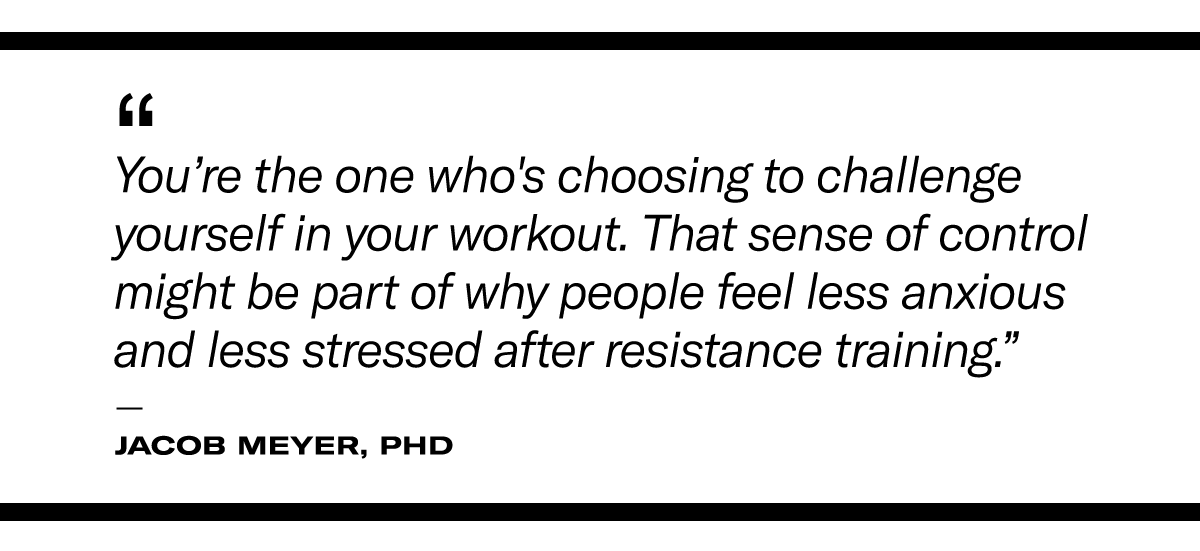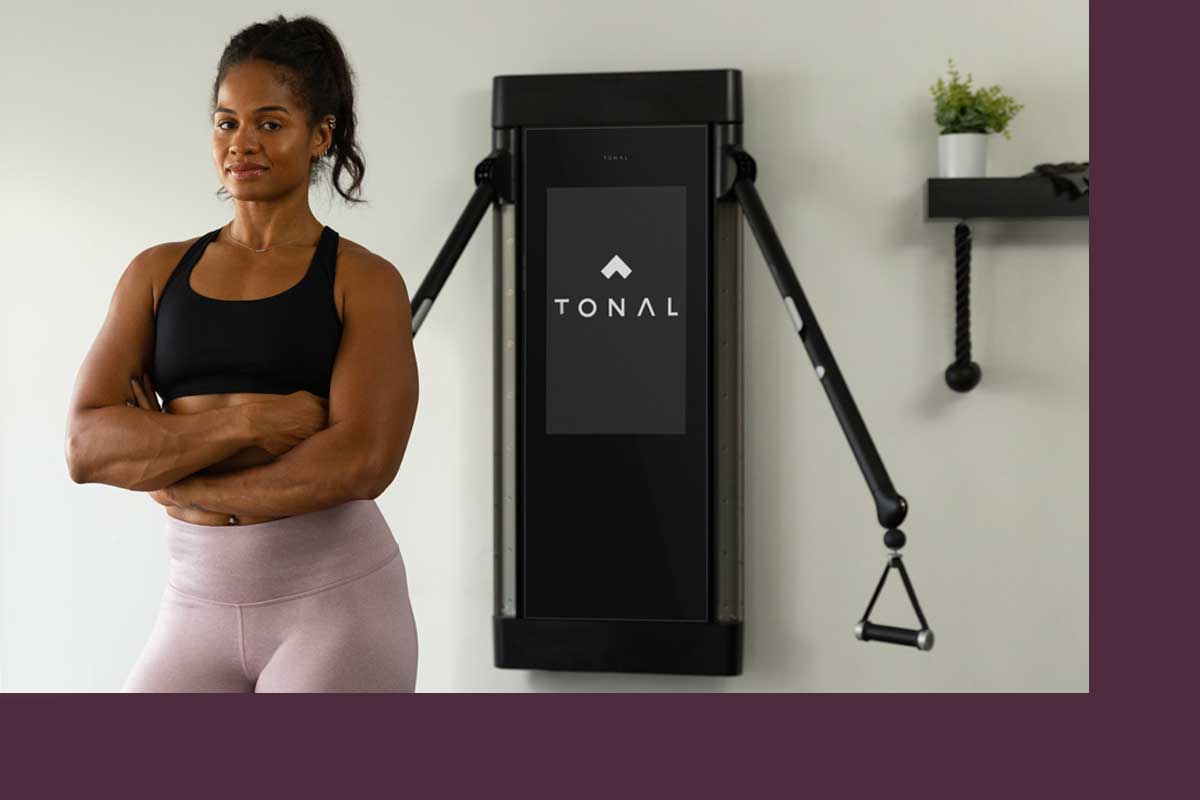Research shows resistance training plays a powerful role in improving your happiness.
A great lifting session sometimes makes you feel like you can conquer the world. Turns out, that feeling isn’t just in your head. Physical activity has been shown to be equally if not more effective than medication and therapy for managing anxiety and depression, according to a new review of studies published in the British Journal of Sports Medicine that included over 1,000 trials and 100,000 participants. And lifting weights has its own perks. Here are four research-backed mental health benefits of strength training.
1. Enjoy Your Workouts More
Whether you’re someone who counts down the minutes until you get to work out, or you spend that time dreading an impending sweat session, how much fun you have might come down to the type of exercise you do. People who performed resistance training reported higher levels of exercise enjoyment when compared with aerobic and yoga training, a study out of West Chester University found. And research published in the journal Perceptual and Motor Skills on high-intensity exercise shows similar results, which could be due to the format of typical resistance training or HIIT workouts.
Think of your strength-training session as a series of mini high-fives every time you finish a set. “If you’re lifting heavy weights, you’re pushing yourself repeatedly, and your goals are consistently met potentially through the whole session,” explains Jacob Meyer, PhD, an assistant professor at Iowa State University and expert on the neurobiological effects of exercise on depression. Older research from the Journal of Sports Science and Medicine shows competence in your workout performance may be key to enjoying your sessions, leading to more motivation to come back the next day.
2. Manage Anxiety and Stress Better
When the Sunday scaries hit or a busy schedule has you feeling frazzled, lifting weights might provide the relief you seek. Researchers from Iowa State University found resistance training alone improved ratings of anxiety over a 12-month program. When combined with aerobic training, the participants also showed lower ratings of stress. A Sports Medicine review of relevant research backed up these findings, showing resistance training improved symptoms of anxiety.

These changes can be measured physically, as well. An 8-week resistance training program was linked to an increase in heart rate variability and autonomic nervous system functioning, two physiological signs of reduced anxiety, in a recent study on college students with anxiety published in Frontiers in Public Health.
This may seem counterintuitive, since resistance training puts your body under stress, but this type of healthy stress better prepares you to face other aggravations in your everyday life, explains Meyer. “You’re the one who’s choosing to challenge yourself in the workout,” he says. “That sense of control might be part of why people feel less anxious and less stressed after resistance training.” Your workouts can also help to build mental resilience so you can navigate the ups and downs of your day with ease.
3. Reset Your Mood
If you can’t seem to shake a negative mindset, shifting your focus to resistance training may help. Researchers from the University of Tennessee found both aerobic and resistance training increased the positive state of mind of the participants.
“We know resistance training can improve someone’s general positive feelings about themselves and how interested or excited they are to participate in different activities,” notes Meyer. “And we’ve seen when someone is in a negative state, resistance training can bring them closer to the positive end of that spectrum.”
When you’re lifting, you’re focusing solely on your movements, with no competing demands on your attention. This may create a space to reset mentally, says Meyer. And while meditation and mindfulness give you a similar timeout from your thoughts, resistance training provides a different task to focus on and offers additional physiological adaptations, like increased strength or improved body composition, that meditation and mindfulness don’t offer.
4. Relieve Depression Symptoms
If you’re feeling overwhelmed, resistance training may help you with the day-to-day management of your mental health. Researchers found that eight weeks of consistent lifting reduced depressive symptoms around the same amount as psychotherapy or medication in a recent study performed at the University of Limerick and Penn State College of Medicine. In other words, “if someone were to start resistance training or an antidepressant, they would likely end up with the same benefit after the course of that treatment,” says Meyer.
You don’t even need to head to the gym to see improvements in depression from exercise. In another recent study published in the International Journal of Environmental Research and Public Health, middle-aged adults experienced fewer symptoms of depression whether they performed resistance training in person or at home.
Using consistent resistance training to improve everyday functioning in your personal, work, or social life in the short term may have lasting mental health benefits—which Meyer says makes strength training a powerful tool in anybody’s toolbox.
The Bottom Line
Meyer recommends trying to meet the Physical Activity Guidelines for Americans–at least two to three sessions of total-body resistance training twice per week accompanied by at least 150 minutes of moderate physical activity–to reap the mental health benefits of working out. Building up to heavy resistance training with progressive overload may offer further benefits, both to the body and mind.
The information provided in this article is for educational and informational purposes only. Individuals with pre-existing health conditions, injuries, or concerns should consult with their healthcare provider before trying a new exercise or nutrition regimen.



